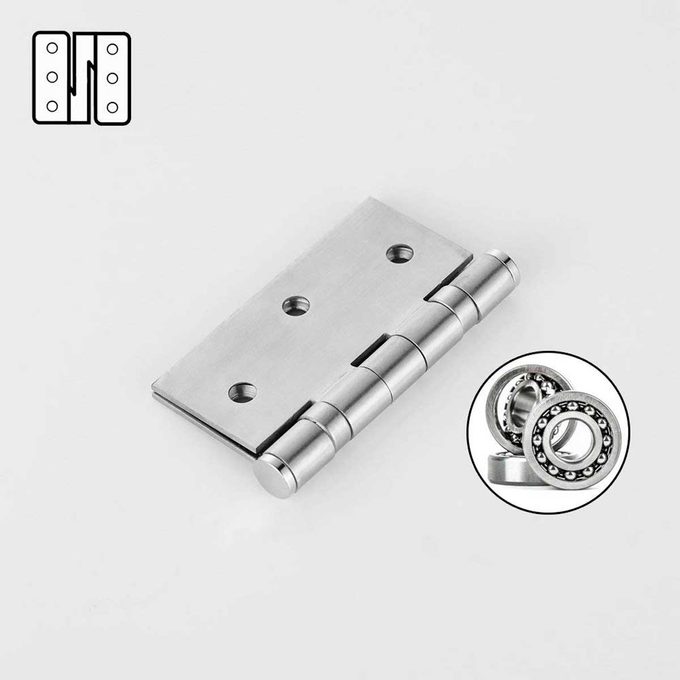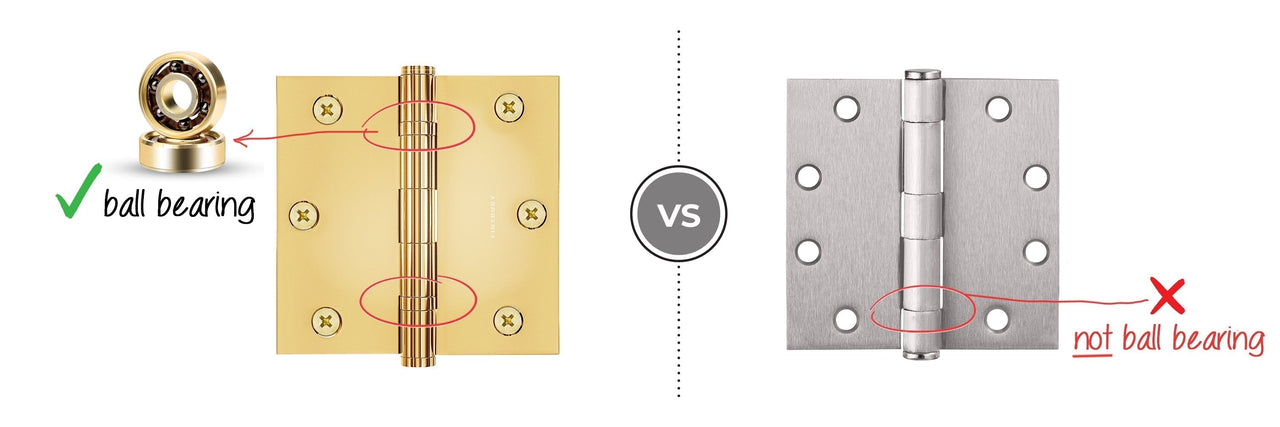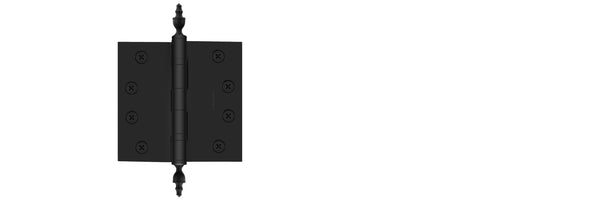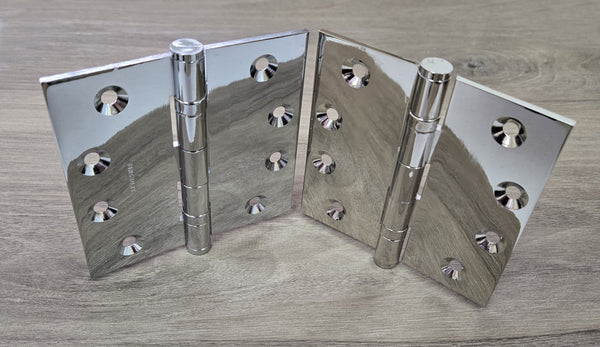Every door in your home or commercial space has a silent companion that ensures its smooth and steady operation. This companion, known as a hinge, might seem insignificant, but it holds the key to the door's functionality. Among the many hinge varieties, the rivalry between ball bearing hinges and regular hinges stands out. Let’s dive into a side-by-side comparison to understand why ball bearing hinges often outshine their counterparts.
Understanding the Basics
Before we jump into the differences, it's important to understand what each hinge type is and how it functions.
What are Regular Hinges?
Also known as butt hinges, these are the most common type of door hinge. They consist of two metal plates (leaves), with one attached to the door and the other to the door frame. These leaves pivot on a central pin, allowing the door to swing open and closed. Regular hinges are straightforward and effective but can create friction over time, leading to squeaking or sticking.
What are Ball Bearing Hinges?
Ball bearing hinges resemble regular hinges in design but come with a secret advantage: hidden ball bearings between the knuckles. These bearings reduce friction, allowing for smoother and quieter operation, especially on heavy or frequently used doors. This makes them ideal for entry doors, solid-core doors, and commercial applications.
How They Work: A Quick Breakdown
Regular Hinges
The leaves of regular hinges rotate around a central pin. As the door moves, the knuckles rub against each other, causing friction. Over time, this can result in wear and tear, squeaking, and even rusting. This is why you often hear that familiar creak when opening a door with standard hinges.
Ball Bearing Hinges
The ball bearings in these hinges act as a buffer, preventing the metal knuckles from grinding against each other. This reduces wear and ensures a much smoother motion. Doors equipped with ball bearing hinges feel lighter, operate more quietly, and last longer. This is especially noticeable in high-traffic areas where constant opening and closing are the norm.

Applications: Where Do They Belong?
Regular Hinges
-
Interior doors
-
Cabinets and lightweight doors
-
Budget-friendly projects
If you are looking for simplicity and cost efficiency, regular hinges are a solid choice. However, they may require more maintenance over time.
Ball Bearing Hinges
-
Exterior and entry doors
-
High-traffic doors (commercial spaces)
-
Heavy solid-core or wide doors
-
Doors with automatic closers
For projects where durability and smooth operation are priorities, ball bearing hinges are unmatched.
Cost Comparison
The cost of hinges varies significantly:
-
Regular Hinges: Budget-friendly, typically starting at $2 per set. Perfect for simple interior doors and light-duty applications.
-
Ball Bearing Hinges: Slightly more expensive, usually starting at $5–$10 per set. Their durability and smooth operation often justify the higher price, particularly for entry doors and commercial applications.
Security Considerations
Regular Hinges
Regular hinges often have removable pins, which can be a vulnerability if installed externally. However, when installed on the inside, this risk is minimized. For added security, you can opt for security studs that prevent hinge removal.
Ball Bearing Hinges
Many ball bearing hinges come with fixed pins, adding an extra layer of security. This prevents intruders from removing the pin to gain access, making them a safer choice for exterior doors. Some models, like Finsbury steel hinges, even come with a non-removeable pin as a built-in security feature, making the pin impossible to remove - an ideal choice for high-security applications.
Why Ball Bearing Hinges Stand Out
Ball bearing hinges are superior in many ways:
-
Durability: Built for heavy use without wear, lasting significantly longer than standard hinges.
-
Smooth Operation: Virtually silent and effortless, reducing the risk of door alignment issues over time.
-
Versatility: Perfect for both residential and commercial use, with the strength to support even the heaviest of doors.
-
Security: Fixed-pin for added protection against tampering.
Conclusion: The Clear Winner
When comparing ball bearing hinges vs. regular hinges, the difference is clear. For high-traffic, heavy doors or enhanced security, ball bearing hinges are the optimal choice. For lightweight or interior doors, regular hinges remain a solid and affordable option.
Upgrade your doors with premium ball bearing hinges today and experience the difference in quality, security, and smoothness.
Shop our selection of premium ball bearing hinges and elevate your door hardware!
Frequently Asked Questions (FAQ)
1. What makes ball bearing hinges better than regular hinges?
Ball bearing hinges are built with ball bearings between the knuckles, reducing friction and allowing for smoother, quieter operation. They are also more durable and better suited for heavy or high-traffic doors.
2. Are ball bearing hinges worth the extra cost?
Yes, especially for exterior or commercial doors. Their smooth operation, increased durability, and enhanced security make them a worthwhile investment.
3. Can ball bearing hinges be used for residential doors?
Absolutely! While they are popular in commercial settings, ball bearing hinges are also perfect for heavy or frequently used doors in the home.
4. Do ball bearing hinges require maintenance?
Not much. Unlike regular hinges that may need oiling due to friction, ball bearing hinges are built to last with minimal maintenance.
5. How long do ball bearing hinges last?
With proper installation, ball bearing hinges can last decades, maintaining smooth operation and structural integrity.
Have Questions About How We Can Help?
If you have any questions about finding the right hinges for your project, or want to learn more about the benefits of ball bearing hinges, feel free to Contact Us. We're here to help you find the perfect solution!



